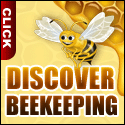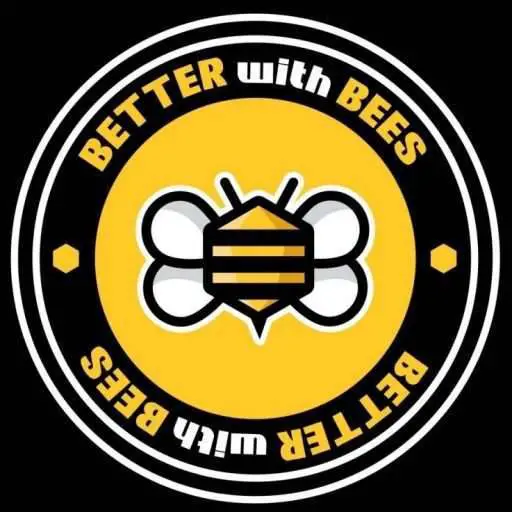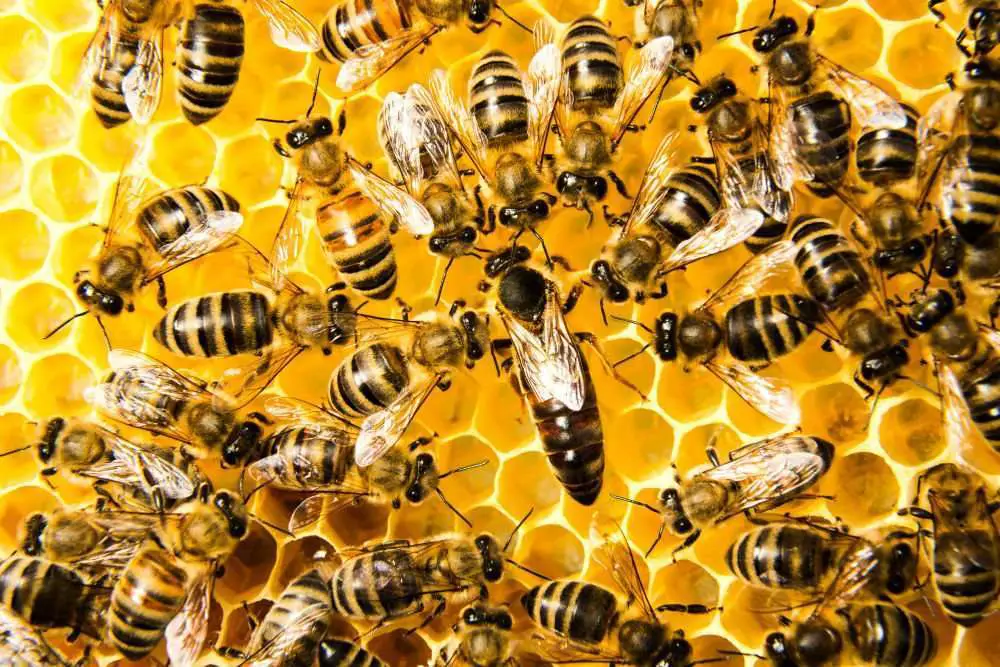Beekeeping is one of those things that most people would never consider doing. After all, these little guys can be dangerous, especially when in large numbers.
However, most professional beekeepers will tell you that the risks are really quite minimal, not to mention that it is a very fun, engaging, and yes, a profitable venture. Whether you really like bees, want some not-so-ordinary pets, or plan on selling the honey, beekeeping definitely has its benefits.
With that being said, keeping hives of bees is not exactly easy. You do need to have the right connections, skills, know-how, and tools to be successful as a beekeeper.
It’s not something that you can just do after thinking “hey, I’d like to keep bees.” It’s something that requires knowledge, skills, and a whole lot of planning.
If you are interested in beekeeping, you will want to follow this in-depth 8-part outline on how to start beekeeping. A good place to start is with a set of informational materials called Discover Beekeeping.


Joining a Beekeeping Association
The first thing that you want to do before you buy any equipment or get started with beekeeping is to join a local beekeeper’s association. This comes with quite a few different benefits.
The biggest benefit is that these associations contain both new and inexperienced, as well as expert beekeepers. From these people you can gleam valuable information and insights into the world of beekeeping.
This is really not something that you want to get into if you have limited knowledge on the subject, especially if you do not have anybody to turn to for help. No, it is not like beekeeping is as difficult as rocket science, but there is a science to it and special methods to follow.
Being part of a local beekeeper’s association will help to provide you with valuable knowledge from the more experienced keepers out there, plus it will give you a chance to discuss issues which other novices might be experiencing.
The bottom line is that you always want to have a vast network of people to turn to when doing this kind of thing. It might even be a wise idea to approach an expert beekeeper and take a peek at their hives. You want to gain as much knowledge on the subject as you can before you get started.

Read, Learn, and Read Some More
Yes, learning from expert beekeepers is definitely a bonus when it comes to this, but sometimes they might not be willing to share all of their secrets with you. After all, not only is this a hobby, but it can be a very lucrative business too.
The point here is that you want to learn anything and everything about beekeeping that you can before you get started.
You want to explore all of the online resources that you can, but books work just fine too. We would recommend checking out some prime resources, with one of the best being a set of books called “Discover Beekeeping.”


In terms of knowledge and valuable information in regards to raising bees and keeping them alive, especially if you want to make a profit, this is one of the best sets of information out there right now.
We would recommend sticking with a professional beekeeping manual such as the one listed above, as there is a whole lot of bad beekeeping advice out there, so sticking with the right educational materials is essential. Did you know that most beekeepers and suppliers probably won’t even sell to you if you do not have training?
In other words, it is wise to go find some workshops to take part in, ones that will provide you with some hands-on experience from knowledgeable professionals.
Starting Out Fairly Small
One big mistake that many new beekeepers make is to start out way too big. The saying “go big or go home” certainly sounds attractive, but when it comes to beekeeping, this is a big mistake.
You never want to start with more than 2 or 3 hives at the most. Simply put, you want to make sure that your knowledge and skills are refined, or at least as close to perfect as possible, before you start taking care of large quantities of bees.
Put it this way, if something does go wrong, and it is due to your own inadequate skillset, at least you will only have a couple hives to deal with instead of a whole massive farm. You need to get an idea of how good your skills actually are, what kind of equipment works best for you, if the location you are in is good, and so on.
If the stuff you have does not work out for 2 hives, it certainly won’t work for 10.
One thing to note here is that you should never start with just 1 hive. It is a good idea to have a point of comparison between hives.
If you have 2 hives, maybe 1 will flourish and the other might not, so being able to compare one to the other might be really useful in terms of figuring out problems. A good rule of thumb here is to start with 2 or 3 hives at the most, but no less and no more.
Making the Right Plan
Just like your knowledge is going to count for a lot, another thing you need is a good plan. Beekeeping is not something that you can just start doing on a whim.
It’s not like going to the grocery store, seeing what protein is on sale, and then building a menu or meal plan from there. Beekeeping is something that requires a lot of planning. Knowledge is a big part of the equation, but there is still much more to it than that.
There are various aspects and factors that you need to consider when planning out your own beekeeping operation. One thing to note is that getting started is not particularly cheap.
You will need a decent amount of investment capital to get started, so one big thing to think about is what your budget constraints are. If you are living paycheck to paycheck, it might not be the best time to start a big beekeeping operation.
There are other things to consider. For one, what kind of bees are you going to get? There are a few different common bee types used for beekeeping.
What are their strengths? Which ones produce the most honey? Which are the most resilient and easy to care for? Another thing to consider is where you are going to get the bees from in the first place.
We would recommend reading reviews and going to reputable beekeeping suppliers. Also, how are the hives going to be managed? Where are they to be located? What kind of equipment are you going to start with?
Sure, you can wing it, but most likely, if you don’t have a good plan, your operation will doomed right from the beginning.

Think About the Required Equipment
Of course, when it comes to beekeeping, you need to have the right equipment in your arsenal. Without the right kind of hives, clothing, and everything in between, you probably won’t be successful.
One of the most important things to consider is the type of hive or hives that you want to house the bees in. There are hives that use standard size Langstroth equipment, medium-sized honey boxes, there are top bar hives, and even 8 frame components as well.
We really don’t want to get into the various types of beehives and their interior components here, as that is a whole different topic, a long and quite extensive topic. The point is that you need to do your research on the types and sizes of hives, as they each have different maintenance requirements, pros, and cons.
When it comes to the kind of equipment you get, capacity is important. How many bees do you want to fit in a hive, and how many hives do you want to fit in a given location?
These are both equally important considerations to keep in mind. You are also going to want to think about what kind of smokers you want, the honey-making equipment, and protective gear too.
As you can probably tell, beekeeping is not very cheap. To get started, you will need to make a pretty significant initial investment; you don’t want to waste your money on subpar equipment or on accessories you won’t need.
Research all of the necessary beekeeping equipment before you get started; you need to choose the right gear.
Laws and Registrations
One thing that many people might not consider before going on a beekeeping adventure has to do with laws, regulations, and registration.
In terms of registration, you will be very hard pressed to find any location out there that does not require you to register your bee hives. Registering your hives, for the most part, is a legal necessity.
The government wants to know where your hives are, how many bees you have, and if the hives are in close proximity to schools and other such locations. On that same note, this means that you also need to familiarize yourself if your local beekeeping regulations and by-laws.
It might sound odd, but this is something that is quite closely monitored, mainly for safety reasons. You don’t want to end up in hot water because your bees decided to go on a rampage at your local elementary school.
You need to be familiar with these regulations because they will tell you what you can’t and can do, and what the requirements are for any beekeeping operation. With that being said, it is a good idea to register your hives and be familiar with laws, not only for legal purposes, but also for knowledge.
Government agencies may send you important weather updates, information about pesticides being used in the area, and other information and advice that can affect your own beekeeping operation. Keeping bees without registering the hives is illegal and can lead to serious fines, and if something goes wrong, it could potentially end in prison time too.
Protection, Protection, Protection!
Ok, so one thing to mention here, right off the bat, is that beekeeping equipment, in terms of protection, is going to cost you a pretty penny. As we have mentioned several times now, this is not something you want to do if you are strapped for cash.
Sure, the bees and bee hives will cost you money, and so will the protective gear and everything surrounding adequate preparation. If there is one thing that seasoned beekeepers will tell you, it’s that making the mistake of thinking that jackets and gloves are optional is a mistake you will only make once.
Yes, you can go without protective gear if you choose, but chances are that you will incur a few dozen stings before you finally decide to get adequate protection. One the of the most important things to go for is of course sting protection.
In terms of gloves, seasoned beekeepers usually won’t use gloves. Whether this is due to pride or due to experience is yet to be determined.
At any rate, if you are just getting started, some good beekeeping gloves will come in handy. Just make sure that they fit right, because dropping a frame of bees is not going to end well, either for you or the bees.
Second, you probably want to arm yourself with some good rubber boots. Bees might just go for your exposed feet or ankles if given the chance, so make sure to protect yourself down there too.
Third, a good beekeeping veil is important too. These bee veils are good options for light beekeeping, such as for inspections, but they usually only cover the head and face, so they are not ideal if you are going to be moving frames around and actually handling bees.
In this case, you will want to get a jacket or a full-body bee suit as well. Seasoned beekeepers might only go with a jacket, but a full-body mesh suit is ideal for beginners. We have a great article to help you find the best bee suit for you.
Cotton suits work fine, but they can get super-hot and sweaty, with mesh suits being the far better option, although much pricier too.
A good smoker is also essential. The smoke calms bees down, it obscures their vision and other senses, and it lulls them into a state of complacency.
Also, you want to keep some Epi-pens handy for anybody that is allergic to bee stings. Whether you are allergic to bee stings or not, you might have neighbors that are.
On that same note, getting liability insurance in case your bees decide to rampage is not the worst idea either.
Look, Learn, and Keep Clean Notes
Yes, there are lots of books, workshops, magazines, and associations out there which will teach you all about beekeeping. However, as with most things, there is just no better way to learn than by doing and by observing.
It might be a good idea to get a chair and just plant yourself close to the bee hives you are operating. Pay attention to the bees’ behavior during certain times of day, how weather affects them, which plants and flowers they like to go for, etc.
A good idea is to smell for various scents, watch for flight patterns, and behavior, and for intra-hive bee activity too. If you notice something out of the ordinary, or something you just don’t fully understand, you will want to take notes and ask questions.
Take your notes to other beekeeping experts and get their input. You also want to take notes in relation to weather, when you add new bees to the mix, when you make changes, and everything else.
Chances are that if you don’t write down little details, you probably won’t remember them.
Happy Beekeeping!
If you have never kept bees before, and have no idea what you are doing, we recommend checking out Discover Beekeeping. As far as we are concerned, this is the best and most comprehensive guide on beekeeping out there right now.
Besides practical hands-on experience, it will teach you everything you need to know for success.
Remember to get the right equipment, make some beekeeping friends, familiarize yourself with laws, and of course, have fun too!




